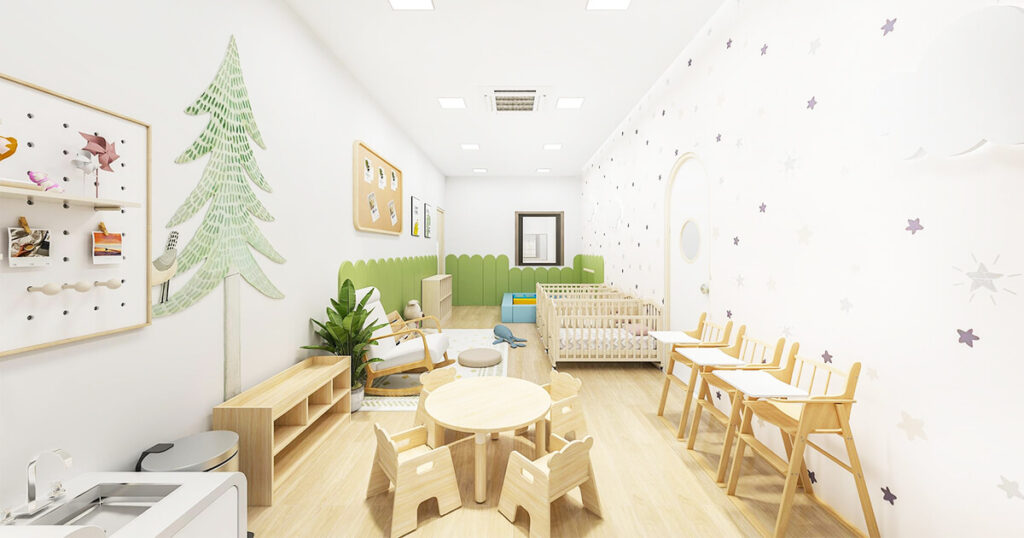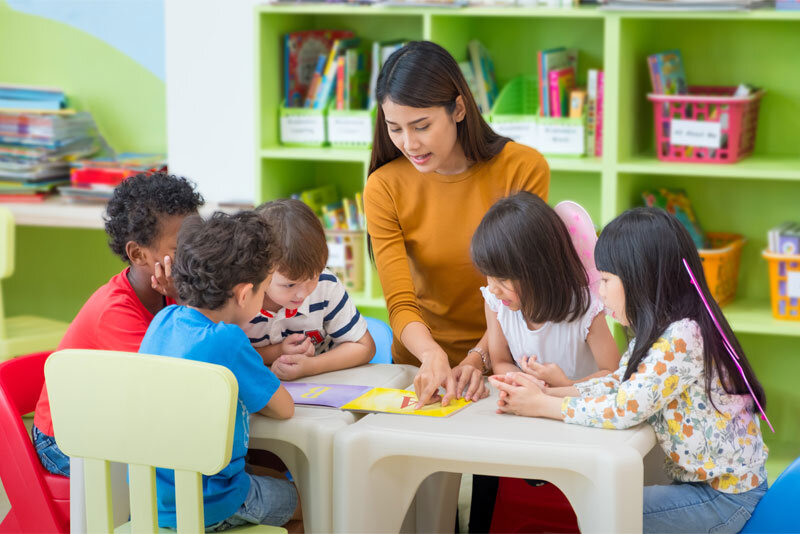How A Quality Child Care Center Encourages Creativity And Confidence
The Duty of DAYCARE in Fostering Social Abilities and Very Early Learning
Day care works as a significant atmosphere for children, helping with crucial social interactions that promote early understanding. In this structured setting, kids involve with caregivers and peers, establishing necessary interaction and collaboration skills. As they navigate play and different tasks, they learn to deal with problems and construct emotional intelligence. Understanding the nuances of these communications discloses the extensive impact daycare has on a kid's growth, shaping their future partnerships and academic readiness. What specific skills do children get in this setting?
The Importance of Social Interaction in Daycare
While many parents recognize the significance of early childhood education and learning, the duty of social communication in childcare is usually underestimated. Daycare settings provide youngsters with invaluable opportunities to involve with peers, cultivating crucial social abilities. Throughout these formative years, children find out to browse different social dynamics, such as sharing, teamwork, and dispute resolution. Communicating with varied age teams and individualities improves their ability to adapt to various atmospheres and establish empathy in the direction of others.

Building Interaction Abilities Via Play
Play serves as an effective tool for youngsters to construct essential communication skills in day care settings. Through different play activities, kids talk, express their thoughts, and find out to pay attention to others. Role-playing video games, for example, motivate them to utilize language in different contexts, advertising vocabulary expansion and understanding of social signs.

Storytelling during playtime permits youngsters to convey concepts and feelings, helping them develop narrative abilities and self-confidence in their verbal expressions. In general, play not just functions as a satisfying activity yet also as a necessary system for establishing the interaction abilities essential for successful social interactions in later life.
Motivating Teamwork and Synergy
Cooperation and teamwork are important skills that kids can cultivate in day care atmospheres. With different team tasks, such as developing jobs or collective games, kids discover to share responsibilities and pursue common goals. These interactions foster an understanding of the importance of listening to others, negotiating roles, and compromising when required.
In day care settings, caregivers typically produce chances for children to take part in synergy by urging them to join group tasks. This not just aids kids establish social bonds but also grows a feeling of belonging and neighborhood.
As they navigate these cooperative experiences, youngsters obtain useful insights into the characteristics of dealing with peers. They discover to appreciate diverse viewpoints and identify that each participant contributes distinctively to the group initiative. Eventually, these very early lessons together and teamwork prepared for much healthier connections and reliable cooperation in future social and academic setups.
Structured Understanding Activities and Cognitive Growth
Structured learning tasks play an essential duty in promoting cognitive growth in children (Childcare Near Me). These activities, that include description problems, storytelling, and hands-on experiments, promote crucial reasoning and analytic skills. In a day care setup, organized knowing motivates youngsters to engage with their peers, enhancing their capability to procedure details and understand different ideas
Via guided play and interactive tasks, kids create fundamental abilities such as numeracy and literacy. Tasks focused around numbers can help children understand mathematical ideas, while narration improves language procurement and understanding. In addition, structured knowing enables teachers to examine developing progression and dressmaker activities to private discovering requirements.

Incorporating a diverse range of structured activities not just their explanation advertises cognitive growth but also prepares youngsters for future scholastic success. By supplying a balanced environment that cultivates expedition and inquiry, daycare programs play a vital function in shaping the cognitive capabilities of young learners.
Cultivating Psychological Intelligence and Self-confidence
Psychological intelligence and confidence are necessary parts of a kid's advancement, complementing the cognitive skills promoted through structured learning tasks. In daycare setups, kids are provided with opportunities to share their emotions and participate in social interactions, which are critical for developing psychological recognition. Through assisted play and group tasks, children learn to determine their sensations, recognize those of others, and develop compassion.
Additionally, interaction with caretakers and peers assists to cultivate self-worth and resilience. Favorable support and encouragement from grownups empower kids to take dangers and face challenges, cultivating a feeling of success. As they browse social dynamics, kids develop confidence in their capacities to connect, work together, and fix conflicts - Child Care Near Me. This caring environment enables for the progressive growth of psychological knowledge, which is necessary for future interpersonal relationships and overall health. Consequently, day care plays a significant duty in promoting both emotional intelligence and self-confidence in little ones
Often Asked Concerns
Exactly How Can Parents Pick the Right Day Care for Their Child?
Parents need to think about aspects such as location, staff certifications, security requirements, curriculum, and evaluates from other moms and dads when choosing the ideal day care for their kid, ensuring it lines up with their child's developing requirements and household worths.
What Age Is Ideal for Starting Childcare?

Exactly How Does Day care Impact Kid's Actions in the house?
Day care typically favorably affects youngsters's actions at home by enhancing social abilities, promoting independence, and motivating psychological law (Daycare North York). Because of this, children may exhibit enhanced interaction and cooperation, leading to more harmonious household characteristics
Are There Any Drawbacks to Daycare Attendance?
Yes, there are downsides to daycare Full Article presence, including potential separation anxiety, exposure to health problems, and inconsistent caregiving. These factors can impact a kid's emotional health and change in the house, affecting overall family members dynamics.
Just How Can Parents Assistance Social Skills Discovered at Day Care?
Parents can sustain social skills discovered at day care by helping with playdates, encouraging cooperative activities, modeling positive communications, discussing sensations, and reinforcing sharing and communication in the house, thereby improving their kid's social development and confidence.
Day care offers as a significant setting for young youngsters, promoting crucial social communications that advertise early discovering. Day care settings supply children with vital chances to engage with peers, cultivating important social abilities. Play serves as an effective medium for youngsters to construct essential communication abilities in childcare setups. In childcare setups, children are provided with opportunities to express their emotions and involve in social interactions, which are essential for constructing emotional recognition. Day care typically favorably affects kids's behavior at home by boosting social abilities, promoting independence, and motivating emotional regulation.